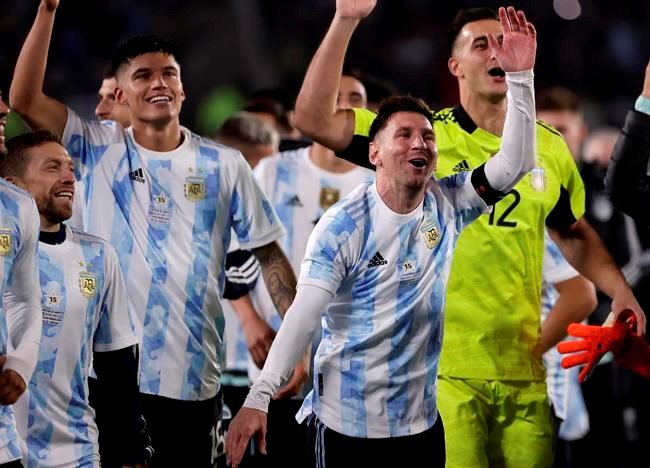GENEVA — FIFA intensified its push for hosting the men’s World Cup every two years on Thursday by garnering support from soccer fans around the world to help combat resistance from Europe and South America.
The latest public relations tactic came in the form on an online survey commissioned by FIFA. The Associated Press does not routinely report the claims of opinion polls conducted over the internet.
The FIFA statement did not provide data, details of the polling methodology or questions asked, but claimed its findings showed “considerable differences between the so-called traditional markets and the developing football markets.”
European soccer body UEFA and South American counterpart CONMEBOL oppose FIFA’s plan and have threatened to boycott additional World Cups. Europe and South America combine for 65 of the 211 FIFA members — fewer than the one-third total likely needed to block any proposal.
The governing bodies of the six continental soccer federations all stage their own championships, with Europe hosting its tournament every four years halfway between the World Cups. Adding an extra World Cup in every four-year cycle would likely cut into the European event’s revenue stream.
The women already have two major world tournaments in every four-year cycle because the top teams and best players compete at the Olympics as well as the Women’s World Cup.
FIFA’s latest survey follows one week after it hosted about 80 former international players, including several World Cup winners, for a two-day meeting in Qatar — the 2022 World Cup host country.
The players reported they all agreed it was a good idea to double the number of men’s World Cups in each four-year period.
FIFA president Gianni Infantino believes staging more tournaments would increase opportunities and enthusiasm in most of the 211 member countries, many of which never qualify to play at the World Cup.
Expanding the World Cup from 32 teams to 48 starting at the 2026 tournament in North America was one of the biggest early decisions of Infantino’s presidency, which began in 2016. FIFA also wants to distribute extra World Cup revenue to improve talent development and help national teams globally close the gap on Europe.
European teams have won the past four World Cups and filled 13 of the 16 semifinal slots. The other three semifinalists from 2006-18 were from South America.
The UEFA-backed Football Supporters Europe group also opposed the biennial World Cup plan, claiming it would distort the balance between domestic and international soccer, and club and national teams.
Global players’ union FIFPRO has also warned of burnout in the increasingly congested soccer schedule.
___
More AP soccer: https://apnews.com/hub/soccer and https://twitter.com/AP_Sports
Graham Dunbar, The Associated Press



